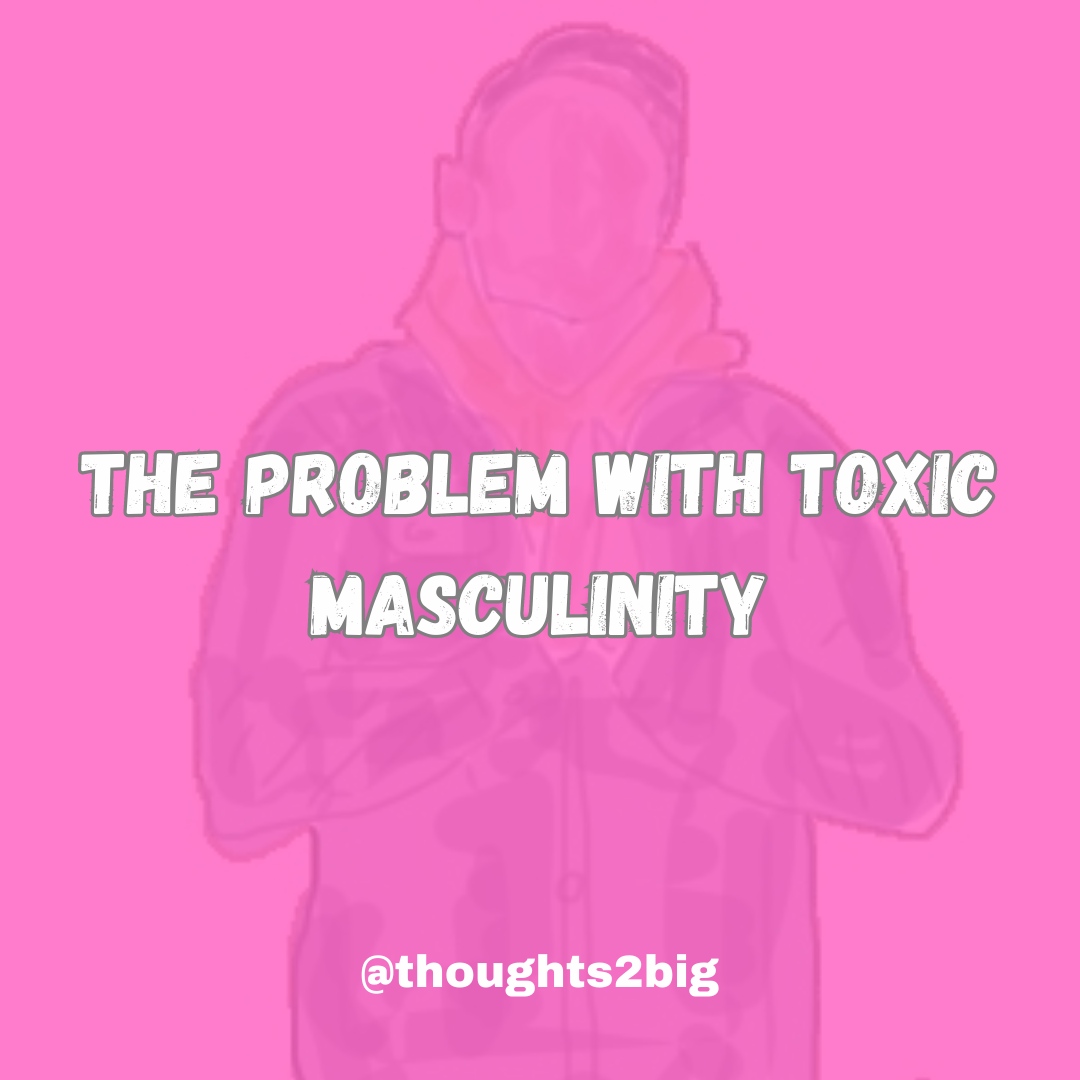The Problem With Toxic Masculinity

Let me state from the outset – I am not for a second saying that the negative behaviours often grouped under the term ‘toxic masculinity’ do not exist. Of course they do, and of course they need to be addressed. And for the first time in a long time I think that progress is actually being made. What I am saying here is that, from a linguistic perspective the phrase ‘toxic masculinity’ is harmful. And I will now try to explain why.
Firstly, it’s important to point out that both men and women can be, and are, masculine. It is not an exclusively male trait. Sure, it’s more common in men, but masculinity doesn’t imply maleness. Many men are not very masculine at all and are still men. Both men and women can be masculine and feminine. That’s cool and important.
For example, I embrace a lot of traditionally feminine qualities. Doing so doesn’t make me less of a man.
Secondly, the behaviours in question are not exclusive to those who are masculine. In fact, many on the behaviours which fall under the umbrella of toxic masculinity can be, and are, perpetrated by both men and women. And if we are to take the misleading understanding of masculinity being directly linked to maleness then we are already facing some paradoxical thinking.
Now for the linguistic bits:
If we are to assume that masculinity is linked to being a man (Which in general it is) then the word masculinity itself is typically synonymous with men.
When we use intensifier phrases consistently with the same words, the meanings of the words morph and consume one another over time. Using a negative intensifier can result in the noun its describing having an implicit negative connotation for those who hear the phrase.
Let me give an example. For my Masters thesis I investigated the use of the phrase ‘mental illness’ in several key Irish newspapers. I focused primarily on two key intensifier phrases – ‘severe mental illness’ and ‘serious mental illness’. What I found was that when authors used the term ‘severe mental illness’ they were describing situations where people had become violent, were incarcerated, had done harm to themselves or others etc. A link was made between the term and the behaviours being described, and so readers would be more likely to assume ‘severe mental illness’ is a term that describes dangerous individuals, and therefore that people with severe mental illness were dangerous, due to this link. This is the power our words can have.
Now turn to ‘toxic masculinity’. What this phrase does is link the entire catalogue of behaviours and characteristics deemed to be masculine to toxicity. We now live in a world that is slowly accepting masculinity to be negative entirely, rather than a subset of behaviours that can be perpetrated by those among us who are both masculine and not masculine. And that’s a problem.
As I stated in the outset, the goal of this article isn’t to suggest these harmful behaviours do not exist. What I am suggesting is that we find a new term, one that is gender neutral and more accurate. Because the current term is a blunt instrument which is ineffective and doesn’t truly reach the heart of the problem. The term toxic masculinity is now a pejorative term, rather than one that accurately captures the issues we’re talking about
When we gender language we automatically – by definition – make our words divisive. If the past number of years have taught us anything it’s that division never gets us anywhere good. The behaviours which are usually described by the phrase toxic masculinity do exist. And need to be addressed. But that phrase itself is not helping this cause because it is causing us all to believe that masculinity in general is a bad thing, and well, that is simply not true.
The way people behave is what we should focus on. This is wherein the serious issues lie. Using language that divides like this results in people focusing on the wrong things. Using this term results in resentful men focusing on terms like ‘not all men’ rather than addressing the real problems. Our language use is important, and terms like the ones discussed here are lazy and are being used to divide rather than to solve any actual problems.
I also write a Substack